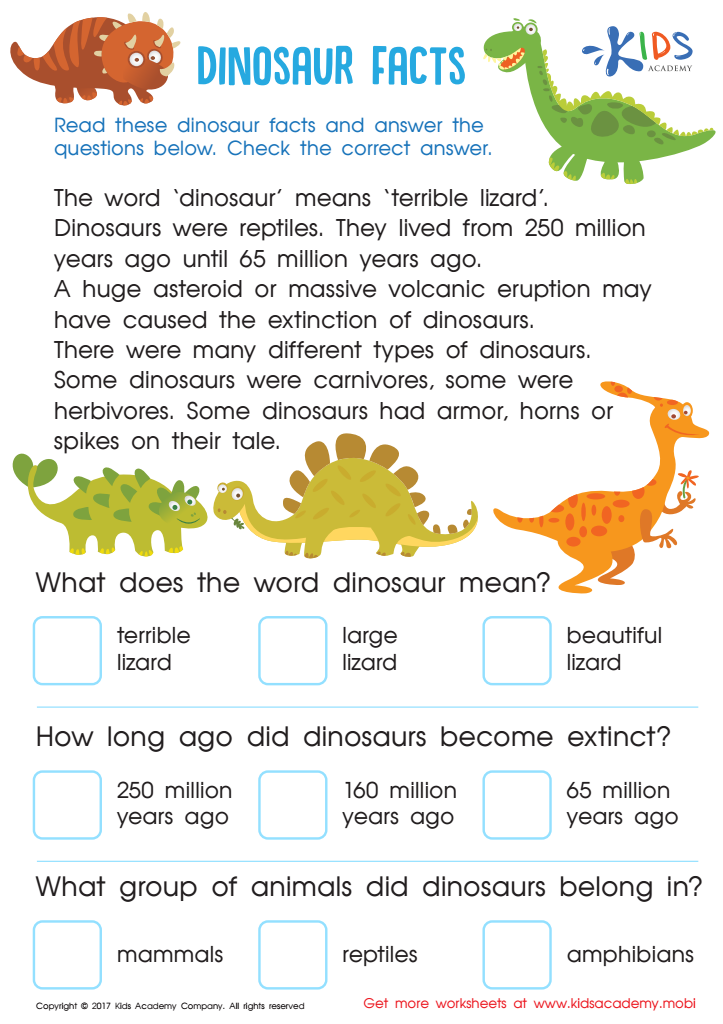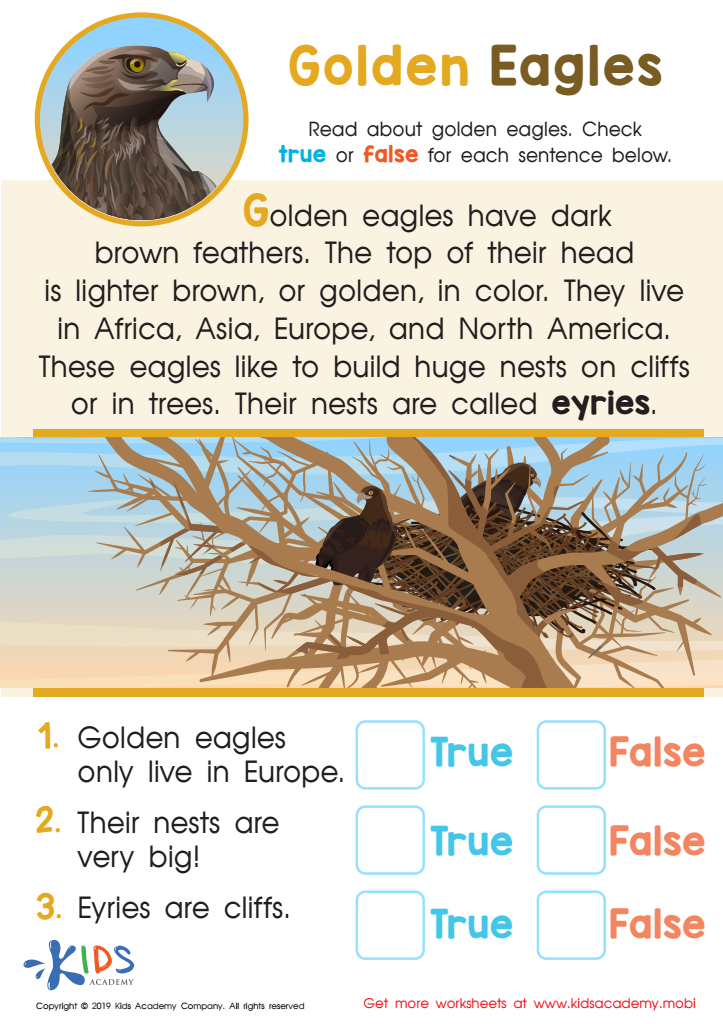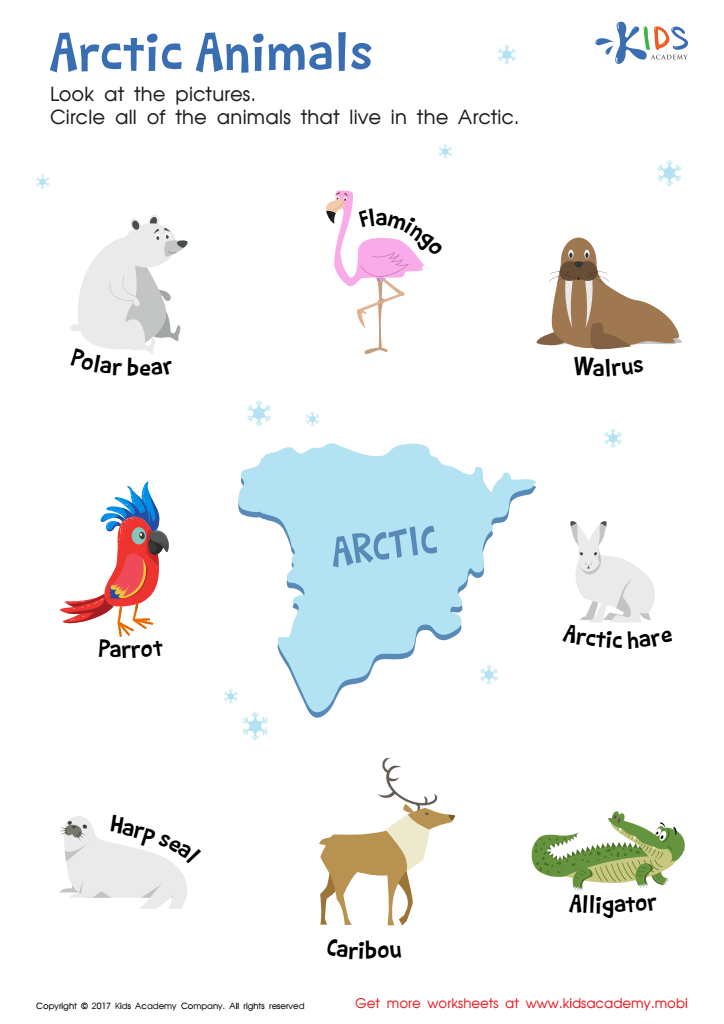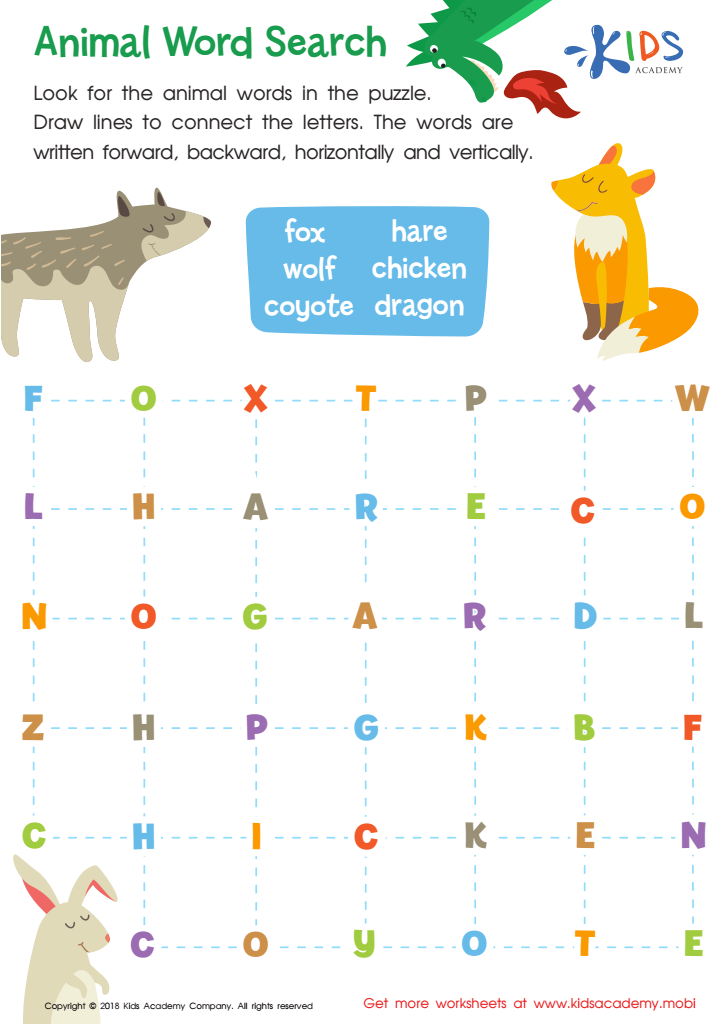Vocabulary Building Normal Animals Worksheets for Ages 6-8
4 filtered results
-
From - To
Discover our engaging "Vocabulary Building Normal Animals Worksheets for Ages 6-8" designed to enhance your child's language skills while exploring the animal kingdom. These printable worksheets introduce kids to common animals, enriching their vocabulary through fun and interactive activities. Perfect for young learners, our carefully crafted exercises promote reading comprehension, spelling, and word recognition. Each worksheet incorporates vibrant illustrations and engaging tasks to captivate children and foster a love for learning. Ideal for both classroom use and home practice, our resource provides a great foundation for knowledge and creativity. Start building your child’s vocabulary and animal awareness today!


Dinosaur Facts Worksheet


Golden Eagles Worksheet


Arctic Animals Worksheet


Animal Word Search Worksheet
It's essential for parents and teachers to prioritize vocabulary building for children aged 6-8, using relatable themes like normal animals, for several compelling reasons. First, expanding a child's vocabulary at this developmental stage enhances their overall communication skills. When children know more words, they can express their thoughts, needs, and emotions more precisely, fostering clearer understanding in everyday interactions.
Additionally, incorporating animals—the ubiquitous and fascinating entities in a child's environment—makes the learning process far more engaging and effective. Animals are a staple in children's literature, entertainment, and education, making them ideal for enhancing contextual learning. When children learn new words in the context of animals, such as "habitat," "predator," or "nocturnal," it enriches their scientific understanding and cultivates curiosity about the natural world.
A robust vocabulary also significantly impacts reading comprehension, a crucial skill for academic success. Children proficient in language can decode new texts more easily and extract deeper meaning, thereby boosting their confidence and love for reading. Moreover, these early years are critical for brain development, and rich vocabulary exposure enhances cognitive abilities, aiding in memory, problem-solving, and analytical skills.
In essence, helping children aged 6-8 build their vocabulary, particularly through inherently interesting subjects like animals, lays a foundational stone for lifelong learning and cognitive growth.

 Assign to My Students
Assign to My Students


%20(1).jpg)













